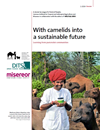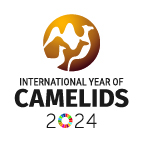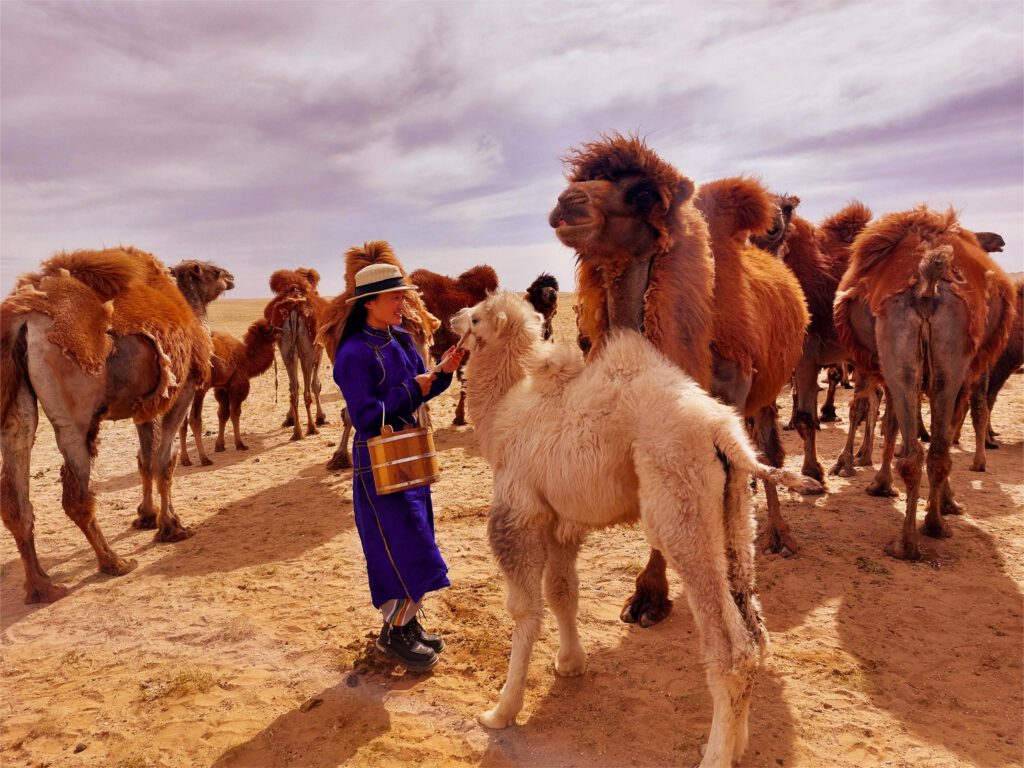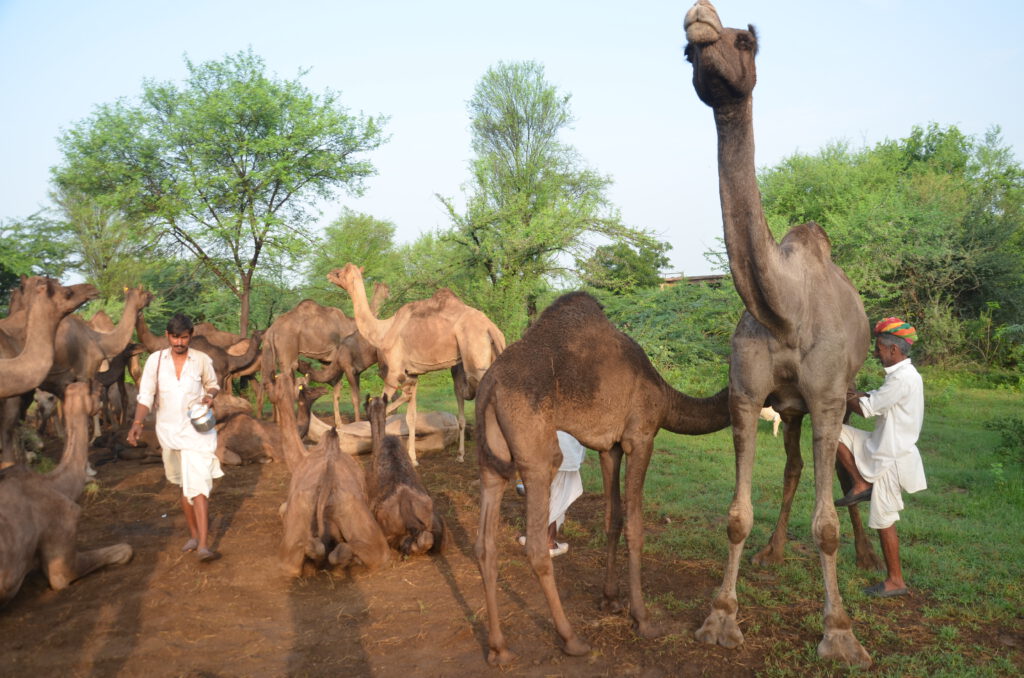With camelids into a sustainable future
Pastoral camelid husbandry is rapidly changing worldwide. Whether in the drylands of Asia and Africa (the “Old World”) or in the Andean highlands (the “New World”), camel herders face increasing challenges.

This dossier by the League for Pastoral Peoples, the German Institute for Tropical and Subtropical Agriculture and Misereor offers a differentiated picture of camelid pastoralists’ realities. An introduction to the importance of pastoralism worldwide is followed by an analysis of how camelid husbandry has evolved over recent decades. In the second part, you can learn about pastoral camelid keepers in the Andean highlands, Eastern Africa and Mongolia. The third part of the dossier looks at the role of research on camelid pastoralism and discusses camelid policies that are needed for a resilient future.
The dossier is available in English and German.
Webinar on Ethical Camel Dairying
'Why camels should not go the way of the cow!'

To celebrate World Milk Day in the International Year of Camelids on 1st June 2024, LPP and its partners organized a webinar on ethical camel dairying that was moderated by its East African coordinator, Dr. Jacob Wanyama. The five presenters are all actively involved in camel dairying on the ground and shared their regionally different perspectives and rich experience. The concluding remarks were given by Dr. Tahira Mohammed who also hails from a camel breeding community.


Ilse Köhler-Rollefson (India)
Ilse Köhler-Rollefson, senior researcher at LPP and co-founder of Camel Charisma, defined what we mean by ethical camel milk production. She emphasized that this practice not only supports the livelihoods of producers but is also healthy for consumers, being free from antimicrobial properties. Additionally, she pointed out the environmental advantages, noting that camel dairy farming requires minimal fossil fuel usage and does not deplete biodiversity.
Presentation: Ethical Camel Dairying and Trends in the Global Camel Dairy Sector
Abdul Raziq Kakar (UAE/Pakistan)
International camel dairy expert Abdul Raziq Kakar discussed case studies from Oman and Ethiopia in his presentation. He illustrated how traditional camel dairying practices have helped humanity survive challenging times, such as droughts, by providing rich and healthy food across the Middle East, Africa, Central, and South Asia. He also explored the relationship between camels and drylands, highlighting camels’ ability to convert rough and woody vegetation into valuable food sources. Dr. Kakar suggested that a decentralized system is essential for ensuring a sustainable future for both camels and cameleers.
Presentation: Camel Milk from Camel friendly Farming Systems. Important case studies from Arabia and Africa
Khandaa Byamba (Mongolia)
Khandaa Byamba (with translation help by Ariell Ahearn) , a camel herder from Mongolia’s Gobi Desert, provided an insightful perspective on the integral relationship between the happiness of camels and the quality of their milk. She shared her experiences with Mongolian camels, emphasizing how their well-being directly impacts milk quality. Khandaa’s passionate account highlighted the potential of camel milk in contributing to goals like no poverty and zero hunger, reinforcing the seminar’s theme of sustainable and ethical dairying
Presentation: Keeping Dairy Camels Happy in Mongolia
Hanwant Singh Rathore (India)
Hanwant Singh Rathore, secretary of the Indian NGO Lokhit Pashu-Palak Sansthan and co-founder of the social enterprise Camel Charisma, illuminated the Camel Charisma model, emphasizing ethical practices in camel milk production. He described the principles on which their model is based:
- Maintenance of traditional nomadic systems, with grazing on natural vegetation and no stall feeding.
- No separation of mother and calf, ensuring adequate milk for the baby.
- Milk is accepted only from registered and trained herders.
- Combining traditional knowledge with modern hygienic requirements.
Additionally, he highlighted their efforts to spread awareness about camel milk and contribute to society.
Presentation: Experiences of Camel Charisma in India
Piers Simpkin (Kenya)
Piers Simpkin
currently Global Livestock Adviser to Mercy Corps, has 40+ years of experience working with pastoralists and jointly owns a herd of 140 dromedaries. He discussed three mobile camel dairying models in Kenya, highlighting their pros and cons. He suggested that with modern interventions, traditional production methods can be a sustainable path forward for camel dairying, preventing it from developing the same issues seen in the cow dairy industry. He also spoke on behalf of Tumal Orto, camel herder from Maikona, who feeds the milk of his camels to his sheep and goats.
Presentation: Mobile Camel Dairying in Kenya
Tahira Mohammed (Kenya)
Dr. Tahira, postdoctoral fellow at ILRI (International Livestock Research Institute), summarized the presentations and dwelled on the challenges that ethical camel dairying faces, especially from unfavourable policy environments. She strongly recommended further research to give it the neded prominence.
Presentation: Ethical Camel Dairying. World Milk Day Seminar. Conclusion
The presentations were followed by lively discussions among the more than 50 participants from around the world. These revolved mostly around practical issues, such as how to manage camels with calves on foot and their milking.
